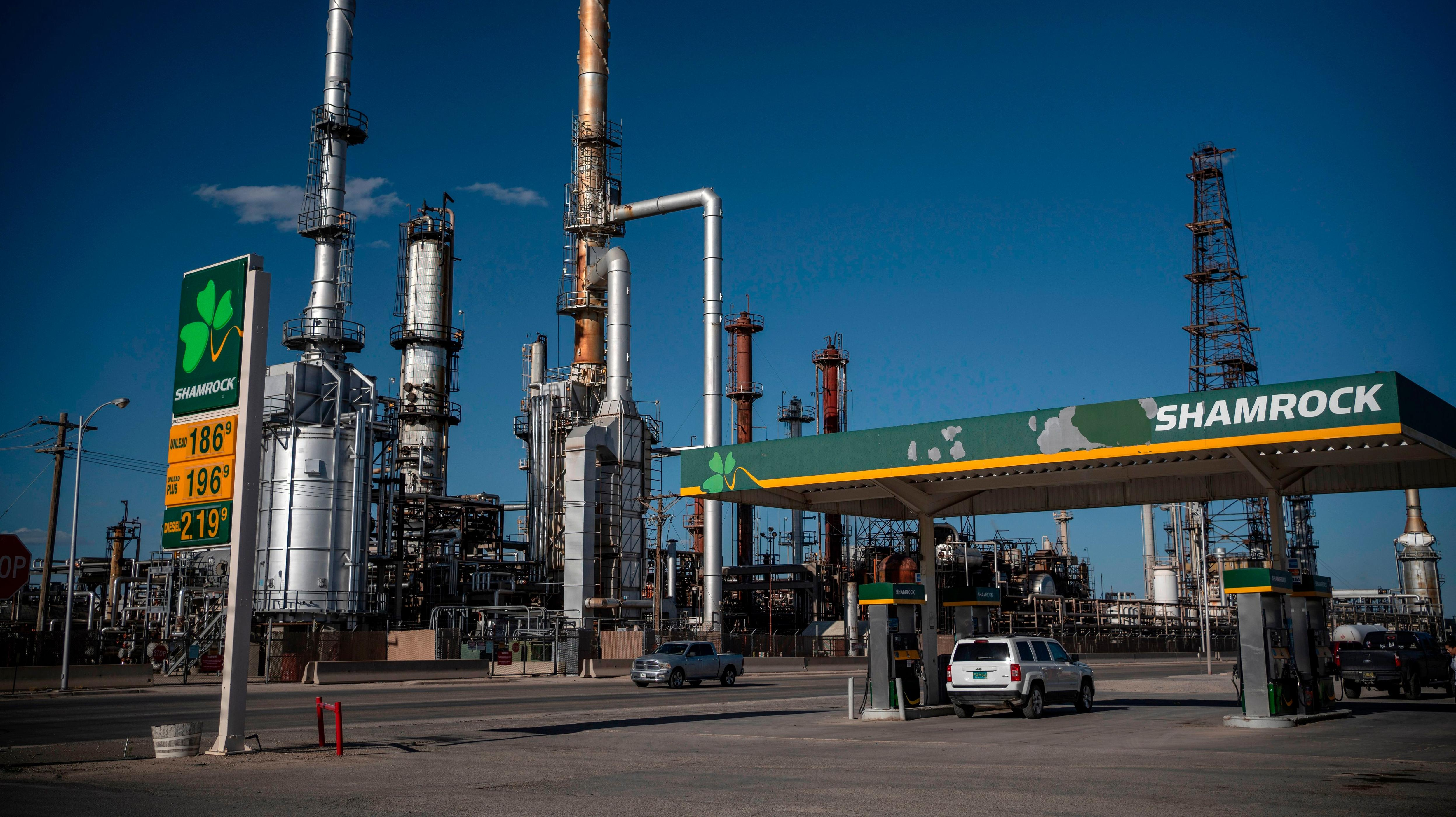New Mexico Court Rules That Gas Stations Can Be Liable For Drunken Drivers
The ruling's implications are a bit unclear but they could be wide-ranging.
Gas stations have a "duty of care" not to sell gas to drunk drivers, a New Mexico court has ruled, according to the Associated Press. The ruling's implications are, for now, a little unclear, but a dissenting justice called the ruling a, "sea change in the law [that] could have far-reaching consequences for retail businesses."
In reaching their decision, released Monday, a majority on the New Mexico Supreme Court said that, "a commercial gasoline vendor owes to a third party using the roadway a duty of care to refrain from selling gasoline to a driver the vendor knows or has reason to know is intoxicated." The decision arose from a fatal incident in 2011, when a station sold gas to a drunk man, who then got into his car, crossed the centerline at some point, and collided with another car, leaving another man dead.
In their decision, the New Mexico Supreme Court describes that chain of events as follows:
On December 29 and 30, 2011, during a night of drinking extending into the early morning, Andy Denny drove his automobile until it ran out of gasoline near Tohatchi, New Mexico. Denny and his passenger walked to Defendant's gas station in Tohatchi to purchase gasoline so that Denny could continue driving. Upon arrival at the gas station, both Denny and his passenger were intoxicated.
{5} While at the gas station, Denny learned that there were no empty gas cans for sale. Denny and his passenger decided to purchase a gallon of water and empty it to use as a container for gasoline. Initially, because they were intoxicated, the clerk working at the gas station would not sell anything to Denny or his passenger, but the clerk ultimately sold the gallon of water and a gallon of gasoline to Denny. After filling the gallon container with gas, Denny and his passenger left on foot and walked back to Denny's vehicle. Denny and his passenger then drove back to the gas station and purchased an additional nine gallons of gasoline for Denny's car.
{6} After driving away from the gas station, Denny dropped off his passenger. He then returned to the highway. As he drove, his vehicle crossed the centerline and then collided with the oncoming vehicle of Marcellino Morris. Morris was killed in the collision.
Morris's estate later sued the gas station, a case which eventually prompted this week's opinion, which notes that Tennessee is the only other state to apply such a legal standard to gas stations. Still, the court ruled that, "Providing gasoline to an intoxicated driver is like providing car keys to an intoxicated driver."
... the Legislature's willingness to hold a licensee who sells alcohol to an intoxicated person liable for injuries to third parties caused by that intoxicated person reflects a policy that liability for injuries caused by drunk driving should extend further than those eligible as injured claimants. A duty not to sell gasoline to an intoxicated person is consistent with liability for providing an intoxicated person with alcohol or a vehicle. Gasoline, alcohol, and the vehicle itself are all enabling instrumentalities involved in intoxicated driving. Gasoline is required to operate most vehicles today.
The logic of that opinion, if applied more broadly, could open a whole other can of worms, as now-retired New Mexico Supreme Court Justice Barbara Vigil, who dissented, argued. Those businesses could include auto parts stores, tire shops, and mechanics, and perhaps even providers of electric charging stations, Vigil wrote. Vigil also raised some practical concerns:
It is unclear whether erratic behavior observed through a window gives rise to a duty to investigate, for example, and the majority provides no guidance as to how that investigation should occur. The majority dismisses concerns about investigation by holding that none will be needed because intoxication is obvious. But the majority does not consider the practical reality of sales to the general public, which involve brief interactions with all and sundry. Customers may exhibit unusual behavior for any number of reasons, and the majority gives no guidance as to what investigation is needed when a gas station attendant simply does not know why a customer is behaving unusually. The majority also dismisses, as irrelevant to duty, the question of gasoline sales to nondrivers. However, the duty not to sell only arises if an intoxicated customer intends to use the gasoline to drive, which leads to a duty to investigate in those cases when, for example, a customer wants to fill a gasoline canister and the intended use of the gasoline is unknown. Again, the majority provides no guidance as to how that investigation should be conducted. Finally, under the majority's reasoning, vendors of any item that enables DWI—not only gasoline—could now be liable for a customer's DWI-related torts. Thus auto parts stores, tire shops, mechanics, and others will be left guessing as to whether they are subject to the new duty and, if so, how to behave so as to avoid liability.
The majority opinion seems reasonable given the facts of the specific case in question, but it does start to feel like a stretch when you think about it in a broader context. At least in the case of bartenders, for example, who have a similar duty not to sell alcohol to the intoxicated, they have vast experience in dealing with the intoxicated, or they are expected to, unlike gas station clerks. Also, many (most?) people use self-service pumps these days and have no interaction with gas station clerks.
Anyway, I'm sure this won't be the last time this issue is adjudicated, and, at any rate, as always, never, ever drink and drive.
